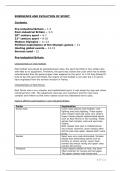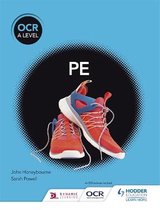-
1. Flashcards - Ocr a level pe flashcards - applied anatomy and physiology - muscles, joints and move...
-
2. Flashcards - Ocr a level pe flashcards - applied anatomy and physiology - cv system
-
3. Flashcards - Ocr a level pe flashcards - applied anatomy and physiology - respiratory system
-
4. Flashcards - Ocr a level pe flashcards - applied anatomy and physiology - energy for exercise
-
5. Flashcards - Ocr a level pe flashcards - applied anatomy and physiology - epoc
-
6. Flashcards - Ocr a level pe flashcards - applied anatomy and physiology - exercise at altitude
-
7. Flashcards - Ocr a level pe flashcards - applied anatomy and physiology - exercise in the heat
-
8. Flashcards - Ocr a level pe exercise physiology - diet and nutrition flashcards
-
9. Flashcards - Ocr a level pe exercise physiology - ergogenic aids flashcards
-
10. Flashcards - Ocr a level pe exercise physiology - preparation and training methods flashcards
-
11. Flashcards - Ocr a level pe exercise physiology - aerobic training flashcards
-
12. Flashcards - Ocr a level pe exercise physiology - strength training flashcards
-
13. Flashcards - Ocr a level pe exercise physiology - flexibility training flashcards
-
14. Flashcards - Ocr a level pe exercise physiology - impact of training on lifestyle diseases flashca...
-
15. Flashcards - Ocr a level pe exercise physiology - acute and chronic injuries flashcards
-
16. Flashcards - Ocr a level pe exercise physiology - injury prevention flashcards
-
17. Flashcards - Ocr a level pe exercise physiology - responding to medical conditions and injuries in...
-
18. Flashcards - Ocr a level pe exercise physiology - injury rehabilitation flashcards
-
19. Flashcards - Ocr a level pe biomechanics - biomechanical principles flashcards
-
20. Flashcards - Ocr a level pe biomechanics - analysis of movement through technology flashcards
-
21. Flashcards - Ocr a level pe biomechanics - levers flashcards
-
22. Flashcards - Ocr a level pe biomechanics - linear motion flashcards
-
23. Flashcards - Ocr a level pe biomechanics - angular motion flashcards
-
24. Flashcards - Ocr a level pe biomechanics - fluid mechanics flashcards
-
25. Flashcards - Ocr a level pe biomechanics - projectile motion flashcards
-
26. Flashcards - Ocr a level pe skill acquisition - skill classification flashcards
-
27. Flashcards - Ocr a level pe skill acquisition - transfer of skills flashcards
-
28. Flashcards - Ocr a level skill acquisition- transfer of skill flashcards
-
29. Flashcards - Ocr a level pe skill acquisition - theories of learning flashcards
-
30. Flashcards - Ocr a level pe skill acquisition - guidance, stages of learning and feedback flashcar...
-
31. Flashcards - Ocr a level pe skill acquisition - memory models flashcards
-
32. Flashcards - Ocr a level pe sports psychology - individual differences flashcards
-
33. Flashcards - Ocr a level pe sports psychology - group dynamics in sport flashcards
-
34. Flashcards - Ocr a level pe sports psychology - goal setting
-
35. Flashcards - Ocr a level pe sports psychology - attributions in sport flashcards
-
36. Flashcards - Ocr a level pe sports psychology - sports confidence
-
37. Flashcards - Ocr a level pe sports psychology - leadership
-
38. Flashcards - Ocr a level pe sports psychology - stress management in sport flashcards
-
39. Flashcards - Ocr a level pe emergence and evolution of sport - pre-industrial sport in britain fla...
-
40. Flashcards - Ocr a level pe emergence and evolution of sport - post-industrial british sport flash...
-
41. Flashcards - Ocr a level pe emergence and evolution of sport - 20th century british sport flashcar...
-
42. Flashcards - Ocr a level pe emergence and evolution of sport - 21st century british sport flashcar...
-
43. Flashcards - Ocr a level pe emergence and evolution of sport - modern olympics flashcards
-
44. Flashcards - Ocr a level pe emergence and evolution of sport - political exploitation of the olymp...
-
45. Flashcards - Ocr a level pe emergence and evolution of sport - hosting global sporting events flas...
-
46. Flashcards - Ocr a level pe contemporary issues in sport - peds, violence and gambling in sport fl...
-
47. Flashcards - Ocr a level pe contemporary issues in sport - commercialisation in sport flashcards
-
48. Flashcards - Ocr a level pe contemporary issues in sport - routes to uk sporting excellence flashc...
-
49. Flashcards - Ocr a level pe contemporary issues in sport - modern technology in sport flashcards
-
50. Exam (elaborations) - Ocr a level pe revision questions with answers - violence
-
51. Exam (elaborations) - Ocr a level pe revision questions with answers - performance enhancing drugs
-
52. Exam (elaborations) - Ocr a level pe revision questions with answers - modern technology and its impact on ...
-
53. Exam (elaborations) - Ocr a level pe revision questions with answers - modern technology and its impact on ...
-
54. Exam (elaborations) - Ocr a level pe revision questions with answers - modern technology and its impact on ...
-
55. Exam (elaborations) - Ocr a level pe revision questions with answers - gambling in sport
-
56. Exam (elaborations) - Ocr a level pe revision questions with answers - from talent identification to elite ...
-
57. Exam (elaborations) - Ocr a level pe revision questions with answers - factors leading to commercialisation...
-
58. Lecture notes - Ocr a level pe revision notes - contemporary issues in sport
-
59. Lecture notes - Ocr a level pe revision notes - emergence and evolution of sport
-
60. Exam (elaborations) - Ocr a level pe exam questions and answers - pre-industrial sport in britain
-
61. Exam (elaborations) - Ocr a level pe exam questions and answers - post-industrial sport in britain
-
62. Exam (elaborations) - Ocr a level pe exam questions and answers - 20th century sport in britain
-
63. Exam (elaborations) - Ocr a level pe exam questions and answers - 21st century sport in britain
-
64. Exam (elaborations) - Ocr a level pe exam questions and answers - modern olympic games
-
65. Exam (elaborations) - Ocr a level pe exam questions and answers - political exploitation of the olympics
-
66. Exam (elaborations) - Ocr a level pe exam questions and answers - hosting global sporting events
-
67. Lecture notes - Ocr a level pe revision notes - applied anatomy and physiology
-
68. Lecture notes - Ocr a level pe revision notes - biomechanics
-
69. Lecture notes - Ocr a level pe revision notes - exercise physiology
-
70. Summary - A level ocr pe revision notes - sports psychology
-
71. Summary - A level ocr pe skill acquisition revision notes
-
72. Exam (elaborations) - A level ocr pe applied anatomy and physiology - respiratory system notes
-
73. Exam (elaborations) - Ocr a level pe applied anatomy and physiology - atp and energy systems questions and ...
-
74. Exam (elaborations) - A level ocr pe applied anatomy and physiology - altitude, heat and recovery questions...
-
75. Exam (elaborations) - Ocr a level pe exercise physiology questions and answers - diet and nutrition
-
76. Exam (elaborations) - Ocr a level pe exercise physiology questions and answers - periodisation and principl...
-
77. Exam (elaborations) - Ocr a level pe exercise physiology questions and answers - ergogenic aids
-
78. Exam (elaborations) - Ocr a level pe exercise physiology questions and answers - aerobic training
-
79. Exam (elaborations) - Ocr a level pe exercise physiology questions and answers - strength training
-
80. Exam (elaborations) - Ocr a level pe exercise physiology questions and answers - flexibility training
-
81. Exam (elaborations) - Ocr a level pe exercise physiology questions and answers - impact of training on life...
-
82. Exam (elaborations) - Ocr a level pe exercise physiology questions and answers - acute and chronic injuries...
-
83. Exam (elaborations) - Ocr a level pe exercise physiology questions and answers - injury prevention in sport...
-
84. Exam (elaborations) - Ocr a level pe exercise physiology questions and answers - responding to medical inju...
-
85. Exam (elaborations) - Ocr a level pe exercise physiology questions and answers - rehabilitation of injury
-
86. Exam (elaborations) - Ocr a level pe applied anatomy and physiology questions and answers - skeletal and mu...
-
87. Exam (elaborations) - Ocr a level pe biomechanics - biomechanical principles + forces
-
88. Exam (elaborations) - A level ocr pe biomechanics - newton's laws of motion questions and answers
-
89. Exam (elaborations) - A level ocr pe biomechanics - levers questions and answers
-
90. Exam (elaborations) - A level ocr pe biomechanics - stability questions and answers
-
91. Exam (elaborations) - A level ocr pe biomechanics - analysis of sport through technology questions and ans...
-
92. Exam (elaborations) - A level ocr pe biomechanics - linear motion questions and answers
-
93. Exam (elaborations) - A level ocr pe biomechanics - angular motion questions and answers
-
94. Exam (elaborations) - A level ocr pe biomechanics - fluid mechanics questions and answers
-
95. Exam (elaborations) - A level ocr pe biomechanics - bernoulli's lift principle questions and answers
-
96. Exam (elaborations) - A level ocr pe biomechanics - projectile motion questions and answers
-
97. Exam (elaborations) - A level ocr pe biomechanics - magnus force questions and answers
-
98. Exam (elaborations) - Ocr a level sports psychology - aggression questions and answers
-
99. Exam (elaborations) - Ocr a level pe sports psychology - anxiety questions and answers
-
100. Exam (elaborations) - Ocr a level sports psychology - arousal questions and answers
-
101. Exam (elaborations) - Ocr a level pe sports psychology - attitude questions and answers
-
102. Exam (elaborations) - Ocr a level pe sports psychology - attribution questions and answers
-
103. Exam (elaborations) - Ocr a level pe sports psychology - goal setting questions and answers
-
104. Exam (elaborations) - Ocr a level pe sports psychology - leadership questions and answers
-
105. Exam (elaborations) - Ocr a level pe sports psychology - motivation questions and answers
-
106. Exam (elaborations) - Ocr a level pe sports psychology - personality questions and answers
-
107. Exam (elaborations) - Ocr a level pe sports psychology - social facilitation and inhibition questions and a...
-
108. Exam (elaborations) - Ocr a level pe sports psychology - sports confidence and self-efficacy
-
109. Exam (elaborations) - Ocr a level pe sports psychology - stress management questions and answers
-
110. Exam (elaborations) - Ocr a level pe sports psychology - group dynamics questions and answers
-
111. Exam (elaborations) - Ocr a level pe skill acquisition - skill classification questions and answers
-
112. Exam (elaborations) - Ocr a level skill acquisition - transfer of skill questions and answers
-
113. Exam (elaborations) - Ocr a level pe skill acquisition - practice questions and answers
-
114. Exam (elaborations) - Ocr a level pe skill acquisition - theories of learning questions and answers
-
115. Exam (elaborations) - Ocr a level pe skill acquisition - feedback, guidance and stages of learning question...
-
116. Exam (elaborations) - Ocr a level pe skill acquisition - memory models questions and answers
-
117. Summary - Aqa level 3 extended certificate - applied science - unit 4 - human biology revision ...
-
Show more





